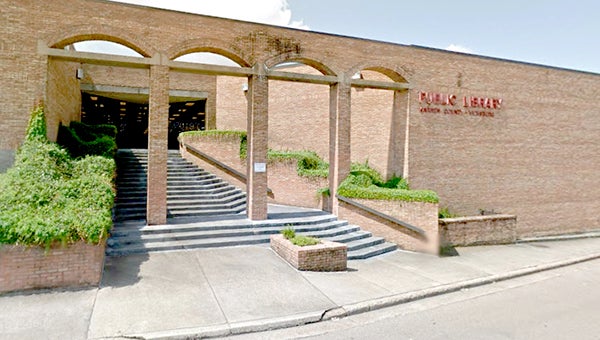Foundations matter
Published 9:00 pm Monday, January 15, 2018
Let me begin by thanking the columnists and reporters of the Vicksburg Post for their outstanding coverage of the Magnolia Avenue High School Historical Marker Program and Unveiling on Thursday, Dec. 28, 2017. Special thanks also to Mayor George Flaggs who supported our request (Athenia Jefferson and Bettye Gardner) for a historical marker from the application process over a year ago to the completion and delivery of the marker.
More than 100 people gathered at the Boardroom in the Annex at City Hall on Dec. 28, 2017, to celebrate the iconic Magnolia Avenue High School where generations of students were educated during the first half of the 20th Century.
Michael Franklin, former President of Morehouse College, defines educational institutions as one of the major “anchor institutions” in society. Clearly, Cherry Street High School established in 1902, later Magnolia Avenue High School, fulfilled this role for the African American community in Vicksburg. Unlike many other towns and cities in the South, Vicksburg was unique in having an African American high school that early in the Century. For more than 50 years this high school laid the educational foundation that led to an educated and progressive African American community.
Mr. J.G.H. Bowman served as principal of Cherry Street High School, later Magnolia, from 1906 until his death in 1944. As a result of Mr. Bowman’s long tenure and his outstanding leadership of Magnolia, the school was renamed Bowman High School upon his death.
During Mr. Bowman’s tenure, he and his teachers developed a remarkable educational center for the African American community. Dr. Craig Kridel’s excellent book entitled, “Progressive Education in Black Schools: The Secondary School Study,” documents the important work that Magnolia High School was engaged in during the 1930s and 1940s.
By 1940, the school enrolled approximately 300 students and had a staff of 12 teachers. That same year, Magnolia High School was invited to participate in the Association of Colleges and Secondary Schools for Negros’ Secondary School Study. Sixteen of the most distinguished African American high schools were selected to participate in an experimental program to examine administrative, curricular, and instructional practices. Among the schools selected, Magnolia was known for its project method of instruction and pupil-teacher planning in the social studies. Additionally, it was the only African American high school in the state to be selected.
The National Park Service has long understood the importance of historic places, defining them as “places that have powerful and provocative stories to tell.” The stories that were shared on Thursday by Magnolia graduates of the 1930s and 1940s spoke to the powerful influence that the school had on them.
Anita Parrott George and Gloria Alfrieda Ellis spoke eloquently of the stories which they heard from their parents and how their own educational and life experiences were shaped by the legacy of Magnolia Avenue High School.
The marker bears testimony to the fact that foundations matter.
Long after the crumbling facade of Magnolia is no more, this generation and future generations will have this tangible link to the past. The Magnolia Avenue High School story must be woven into the history of Vicksburg so that this rich educational experience, now rediscovered, cannot be lost again.
Bettye Gardner, Ph.D., is co-chair of the Magnolia Avenue High School Historical Marker Committee.





